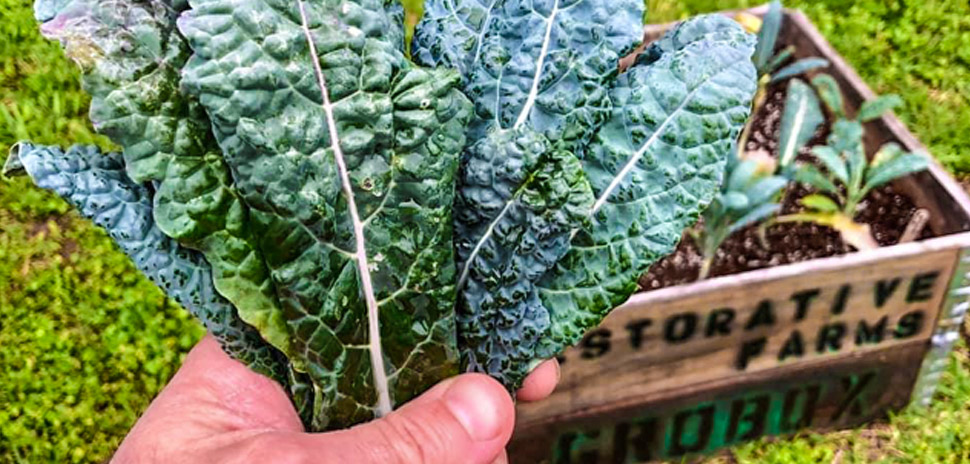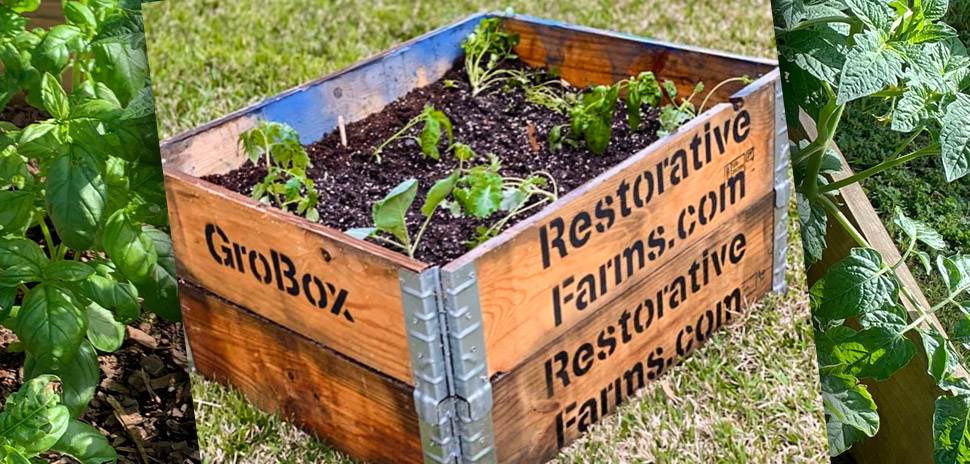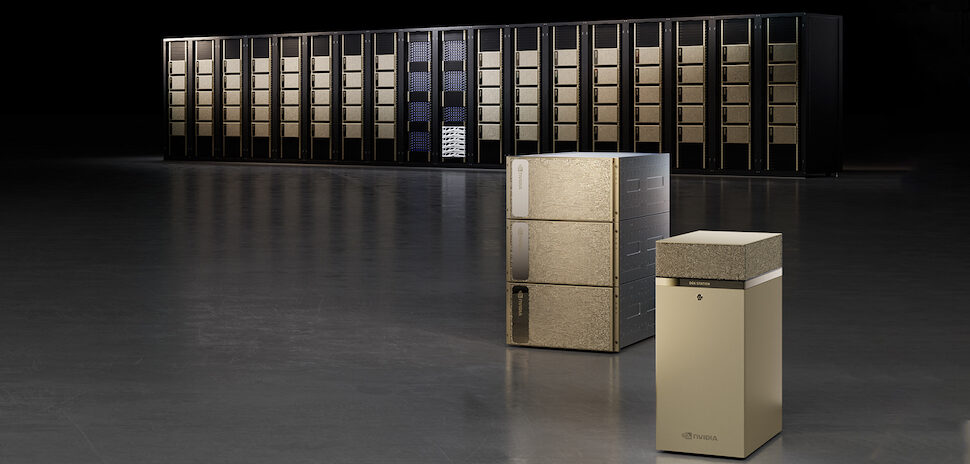Since the citywide shutdown on March 23, Dallas nonprofit Restorative Farms has adapted to the economic challenges caused by the COVID-19 pandemic by using Southern Methodist University students’ communication expertise to engage online consumers and offer deliveries to North Texans of its self-contained garden boxes called Victory GroBoxes.
The Victory GroBox is named after victory gardens, which were popularized during both World Wars, and comes with locally sourced seedlings of customizable herbs and vegetables and the tools customers need to reap what they’ve sowed. For $110, each GroBox comes with a wooden box, six cubic feet of organic potting soil, and a variety of seedlings selected by the buyer.
Restorative Farms says it’s about half the cost of similar items sold at big-box retailers. The garden boxes are available to the general public with earnings from sales helping the local community. Even more, residents in the impoverished area served by Restorative Farms may purchase the kit at a discounted price. A Victory GroBox is also donated to a community member for every 10 boxes sold.
Extraneous circumstances led the students of Dr. Doric Earle, a board member and communication professor at SMU, to initially take on the cybernetic learning of professional projects in an academic setting.
“After classes went virtual, I pivoted to the online approach for Restorative Farms and my students came up with things that we could do to improve our social media presence and website,” Earle told Dallas Innovates. “My students got to be part of something going out into the community, something real, not just a simulation in class. It was a wonderful experience for them, particularly under the circumstances because the world news is pretty grim. They had an opportunity to make a real impact in Dallas.”
Restorative Farms was co-founded by Owen Hanley Lynch. Lynch, who teaches as an associate professor in the SMU Meadows Division of Corporate Communication and Public Affairs (CCPA), is on sabbatical while he shepherds the nonprofit, but two of Earle’s classes were already working with Restorative Farms before the shutdown took effect in March.
Before that point, the nonprofit served strictly to create agri-systems in nearby underserved communities, like Dallas’ Hatcher Station, by providing seedlings, soil, employment, and the necessary skillset for people to grow fresh vegetables. According to the company’s website, “we have unique assets in underinvested communities, abundant vacant lots close to core business district, under-utilized local human capital and a climate and infrastructure that provides an environment for immediate growth.”
On one hand, COVID-19 felt like it hit the organization at an especially vulnerable time. Restorative Farms was at risk of losing thousands of seedlings that had been grown to sell at farmers’ markets in April—its most profitable month. On top of that, the organization’s plan for its latest Hatcher Station Training Farm and Community Garden, where residents of underrepresented neighborhoods would learn methods to grow their own fruits and vegetables, was threatened by coronavirus’ untimely ascendance on the community.
On the other hand, Earle presumes that these difficult circumstances are why people are turning to Restorative Farms.

[Photo: Restorative Farms]
According to Earle, GroBoxes work with consumers because gardening acts as a practice to becoming attuned with nature during times of uncertainty, which may help to keep people grounded. Though there’s no instant relaxing gratification in this agricultural mini-patch, Restorative Farms has created jobs due to the rapid growth of online traffic. This contrast between the modern, fast-paced social media marketing and the slow tradition of gardening ties into Restorative Farms’ use of history to help with the future.
Harkening back to the emotional climate of the First and Second World War when victory gardens made up 40 percent of all the fresh fruits and vegetables consumed in the United States, Earle clarified the reasoning behind the social effort’s rebranding of the gardens to “Victory Boxes” as a motif of modern wartime to underscore resilience in the hands of average citizens.
“We’re all shut in, at war with an invisible enemy, which resonates with people to give them something to fight against and to create positivity,” Earle says. “There’s something profoundly rewarding about working with your hands during stressful periods. This is our Victory Garden. We’re fighting back. We’re doing something positive against this and for ourselves while this panic rages around us.”
Above all, Earle instills a lesson of communal camaraderie in his students and hopes to impart it to others.
“Look in your neighborhood, look around your community,” Earle says. “See who set up their little businesses to try to stay alive, and those that are still open. Support them as much as you can.”
![]()
Get on the list.
Dallas Innovates, every day.
Sign up to keep your eye on what’s new and next in Dallas-Fort Worth, every day.






























